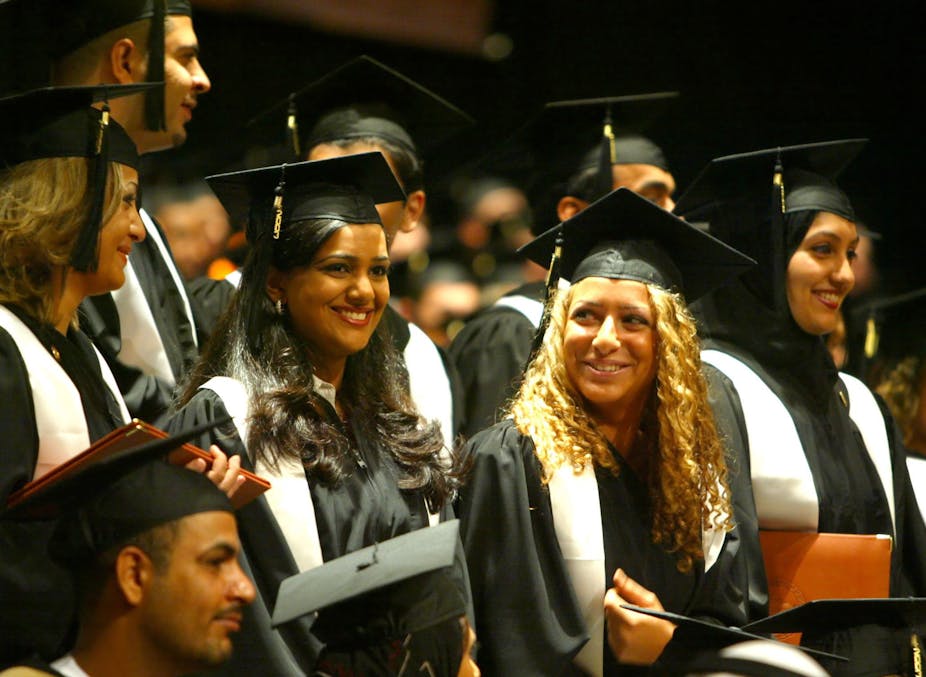Australia is ranked eighth out of 48 countries in a new global measure of higher education - behind the US, Canada and Scandanavian countries, but ahead of Britain, France and Germany.
The Universitas 21 Ranking, designed by researchers at the Melbourne Institute of Applied Economic and Social Research, University of Melbourne, scores countries by performance across four areas: resources - or investment by government and private sector, output - or research and its impact, as well as the production of an educated workforce which meets labour market needs, connectivity in international networks and collaboration, and environment - or government policy and regulation. Population size is accounted for in the calculations.
Although Australia placed just 19th for resources, on account of relatively low spending by the government and private sector on tertiary education and research, it came seventh for output - which takes into account research papers, enrolment levels and the percentage of adults with a university degree. As a result, it achieved an overall ranking of eighth, with a score of 78 out of 100.
Lead author, Professor Ross Williams at the University of Melbourne, said that given Australia’s relatively poor score on resources - pulled down by the fact government spending on tertiary education as a percentage of GDP was the ninth lowest of any country - it was pleasing to see it still produced a high output, suggesting that it was very productive.
But he said that Australia should be doing at least as well as Canada, a country with a similar culture and system, which was only slightly bigger and no wealthier.
Professor Williams warned that unless there was more government funding for tertiary education, especially research, Australia could find itself slipping down the rankings in years to come.
The countries that outplaced Australia were, in order, the US, which scored 100, Sweden, Canada, Finland, Denmark, Switzerland and Norway.
“While there are a number of well-regarded global rankings of individual institutions, these don’t shed any light on the broader picture of how well a nation’s system educates its students,” Professor Williams said. “Students choose countries to study in as much as individual institutions, and the Universitas 21 Ranking offers clear data to support decision-making.”
Tony Sheil, Deputy Director of Research Policy at Griffith University, said the Universitas 21 Ranking filled a gap for people interested in the strength of entire “systems” as opposed to individual universities.
“I’m not entirely sure why results needed to be presented as a ranking given the small variations between nations at various points on the listing,” he said. “For example, should we conclude that Australia’s higher education system, with an overall score of 78, is weaker than that of Switzerland on 80 or stronger than the UK with 77? Probably not.
"Clearly the index has been constructed very carefully not to advantage size - large or small. It is however interesting to note that 13 of the top 20 nations are small nations. Four Scandinavian countries and Switzerland occupy five of the top seven positions … [which] confirms the difficulty faced by countries with very large populations such as China and India to compare well with small, focused nations on per capita measures.”
Gavin Moodie, Principal Policy Advisor at RMIT University, described Australia’s ranking as “fair”, but he added that Australia “performs less well than it may like because of its sustained cuts to vocational education.
"Australia ranks only 13 on its number of researchers per head of population, well below its overall rank of eighth. Nonetheless, it ranks fourth on total research articles produced per head of population, suggesting that Australia’s researchers are highly productive.
"Of course the lack of measures of teaching quality and of student learning are the big gaps in this and every other tertiary education league table.”

